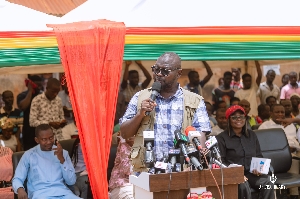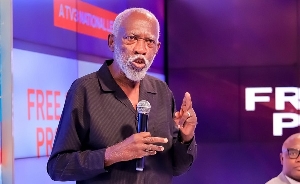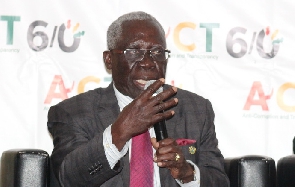 Panelists on the Eye on Port show
Panelists on the Eye on Port show
The Tema Port Fire and Safety Manager, Edward Heyman, has called for importers to do their due diligence on the standard practices necessary before importing hazardous cargoes and to undergo the necessary clearance processes with relevant statutory agencies before such cargoes arrive in the country.
“If you know you’re importing such cargoes, make sure you follow the due processes available,” he emphasized.
According to him, this would help his outfit pre-plan on the quick and safe procedures to handle hazardous cargo in and out of the port environment for safe delivery.
Speaking on Eye on Port, on Lessons Learnt from the Lebanon Port Explosion, Mr. Heyman said the contrary action by importers makes the work of the Port Authority and for that matter the fire and safety department’s work, difficult, in facilitating the quick delivery of such dangerous cargo out of the port environment and the longer such cargoes stay in the port, the riskier it is.
The General Manager in charge of Estate and Environment at GPHA, Mr. James Benjamin Gaisie, on the same program called for a stop in the practice where importers bring in cargo without being ready to clear them, emphasizing that the port is not a warehouse for goods, and more importantly, such dangerous cargo.
“The port cannot be a warehouse for such cargo and now go and look for a buyer as some of them do. Until they get the buyer, they will not come and clear,” he advised.
He also called for expedited processes to ensure the proper disposal of such hazardous cargo after confiscation to ensure these goods do not overstay in the port area, due to the volatile nature of port activities.
“When the consignee is not prepared to clear, it is very difficult forcing him to clear. So once the cargo has been confiscated, then the best thing is to find a use for it and dispose of it. Identify those who have use for it then maybe allocate it to them,” he proposed.
Mr. James Gaisie also urged importers to only employ EPA-licenced transporters in the carriage of hazardous cargo because it is important to ensure that after goods have left the port, they are in safe hands to protect the larger public.
A Senior Revenue Officer in Charge of Customs Laboratory, Customs Division of the Ghana Revenue Authority, Richard Adu Yirenkyi, on the same panel, educated that, even though revenue mobilization and trade mobilization are among their key objectives as a state institution, the security of the country’s people and environment are also within the remit of Customs.
Hence, the need to ensure that the paperwork supporting such dangerous cargo are accurate before releasing them to individuals or companies who have imported them into the country.
“As dangerous as they are, they need to be controlled so we don’t just allow them onto the market, without the necessary procedures,” he stated.
Mr. Yirenkyi also encouraged importers to ensure to acquire all necessary permits as well as accurately declare such dangerous cargo to help authorities conduct speedy checks on them for easy release.
The incident at Beirut Port in Lebanon, on the 4th of August, is believed to have begun from an initial fire around a Warehouse in the port, which ignited about 2,750 tonnes of ammonium nitrate in the warehouse causing a colossal explosion that traveled as far as 5 miles away from the port.
Many properties in the city were destroyed and over 300,000 people misplaced and 5,000 injured with about 200 people confirmed dead.












